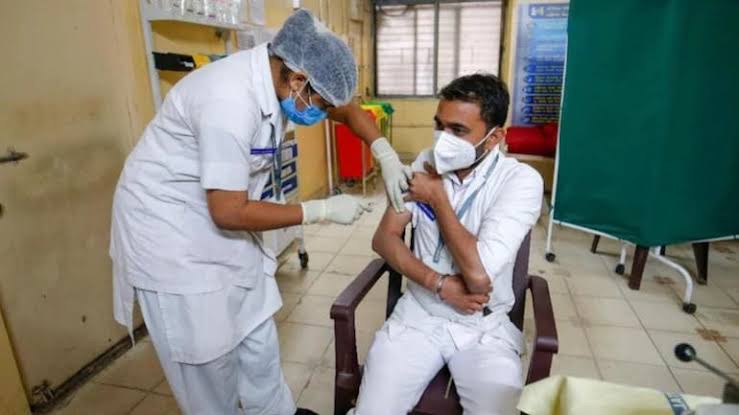India has joined the ranks of wealthier nations by beginning to inoculate health workers on January 16 in what is going to be the world’s largest COVID-19 vaccination campaign. Among the 195 countries in the world the United States, Britain, Israel, Canada and Germany have already adopted some measure of protection with at least one dose of vaccine. Over 35 million doses of various COVID-19 vaccines have been administered around the world, according to the University of Oxford. India is second to the US with 10.5 million confirmed cases, and ranks third in the number of deaths, behind the US and Brazil, with a toll of over 150,000 lives.
The vaccination programme was launched in India on a day when Norway expressed concern about the safety of Pfizer’s coronavirus vaccine on elderly people after at least 29 of them died within days of receiving the shot. The Norwegian authorities are reported to have decided to exclude elderly people from vaccination for the time being. The most striking difference between vaccination in the rich countries and in India is the fanfare the government of India is making over a life-and-death issue underplaying the risks involved in order to make political capital of it.
The government is in effect equating the drive with its political-economic slogan of “atmanirvar India” (self-reliant India) and “make in India” even though scientists and doctors across the globe have been working overtime to find out the right remedies to fight this pandemic. It is glossing over the fact that one of the two vaccines being rolled out – Covaxin – has not yet completed the third phase of clinical trial for which fears among the people about it, produced by Bharat Biotech, persist. They wonder whether they are being made guinea pigs by a politician-business nexus. Undermining the seriousness of the problem of unparalleled magnitude, ministers and politicians are singing paeans of praise for Prime Minister Narendra Modi giving him all the credit for the vaccination and making it a hilarious issue. Against the backdrop of the rising global COVID-19 death toll topping 2 million on 15 January, the clock is ticking to vaccinate as many people as possible. But the campaign has been uneven. Immunization drives have barely gotten off the ground in most countries and many experts are predicting another year of loss and hardship in places like Iran, Mexico, Brazil and India, which together account for about a quarter of the world’s deaths.
India gave the nod for emergency use of two vaccines – one developed by Oxford University and UK-based drug maker AstraZeneca, and another by Indian company Bharat Biotech – on January 4 following which 16.5 million shots have been sent to different states last week. This was done dismissing health experts’ worry that the regulatory shortcut taken to approve the Bharat Biotech vaccine without waiting for concrete data to show its efficacy could only amplify vaccine hesitancy. At least one state health minister has opposed its use.
The government’s hurry to be populist over COVID-19 vaccination is understandable. It has handled the pandemic in a sordid manner. The country’s economy is in shambles and its foreign policy has been so myopic that India is beset with dangers posed by a belligerent, ambitious and pro-active China. In such a backdrop its decision to roll out the vaccines without waiting for clearance for their safety may not be in the best interest of the common man.
The government is trying to convince the people that the country has the record of successfully administering polio and other vaccines and as such they can trust the government during the current programme. But, the vaccination against Covid-19 is not like running childhood vaccination programmes. Experts say countries that get enough vaccine for 20 per cent of the population will not be able to stop transmission. They will be in an “endless cycle”. The coronavirus is not going away anywhere anytime soon. The whole world is watching how the Indian experiment pans out. The need is for an extremely cautious approach. Cynical political calculations should not dictate the timing of safe and efficacious vaccination and the scientific community should be given enough time to complete the due process.
